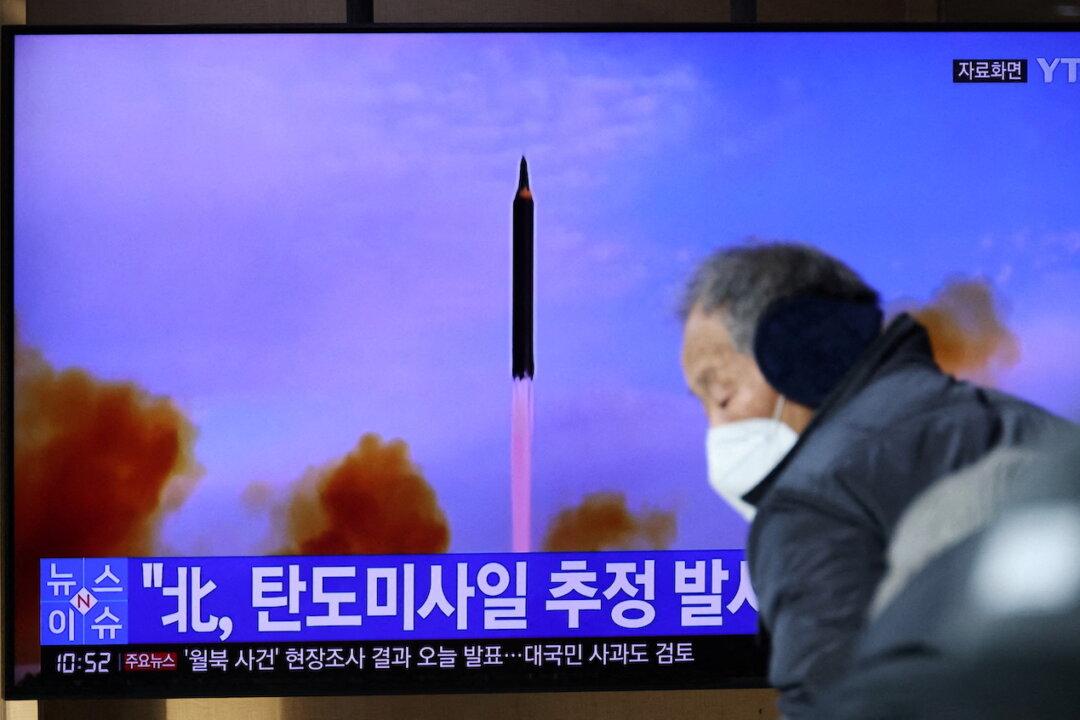North Korea has fired a possible ballistic missile off its east coast just one week after its leader, Kim Jong-un, vowed to bolster North Korea’s military capabilities amid instability on the Korean Peninsula, authorities in Japan and South Korea say.
The Japanese Ministry of Defense said in a statement that a possible ballistic missile was fired from North Korea at around 8:07 a.m. on Jan. 5. The projectile flew about 500 kilometers (about 310 miles) and landed outside of Japan’s exclusive economic zone.





